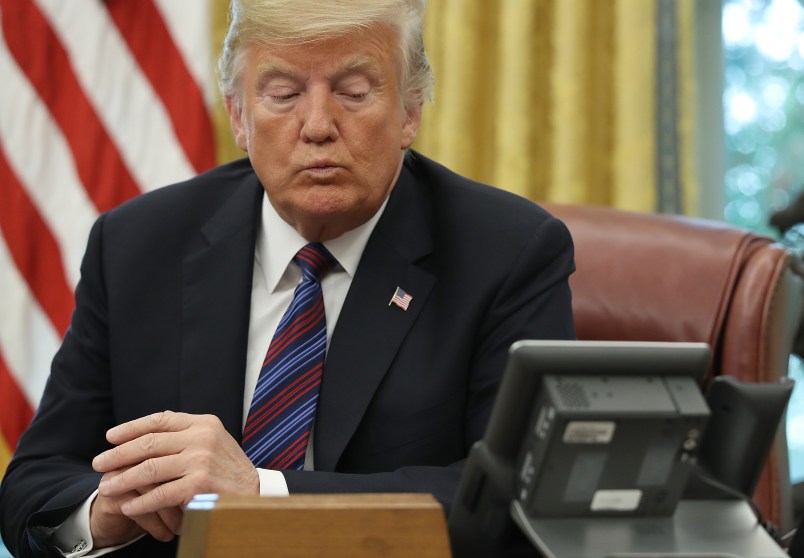Gallup is out with its weekly Trump approval number today and he’s down at 38% approval, 56% disapproval. That’s one of his lowest numbers all year. Polls go up and down of course. But there’s a point I want to make that goes beyond what appears to be Trump’s permanent ping-ponging between 36% and 42% public approval. Put simply, I doubt it will be an accident or momentary that President Trump’s support goes down post-election. Partisanship is a heavy constraining force on public support in this era.
Something comparable actually happened in 2004. In the last months of the 2004 election, President Bush got more popular. That’s not surprising. What’s more challenging to explain is that the Iraq War did as well, even though there was really no improvement you could point to on the ground in Iraq to which to attribute it. Indeed, things were by almost every metric or standard getting worse.
The best explanation is that Republican partisans had a difficult time reconciling their desire to vote for President Bush’s reelection with the reality of what had happened with the signature policy decision of his presidency: the Iraq War. If Bush’s big call was the Iraq War. And it was a disaster, is it really a good idea to vote for him again? It’s a challenging question. One answer is to think John Kerry would be worse. But a key part of the equation was that they reconciled their cognitive dissonance by improving their opinion about how things were going in Iraq. After Bush’s reelection, his numbers and support for the Iraq War continued their downward slide.
It seems quite likely that something similar is happening today with President Trump. Candid appraisals of the President are back to having relatively little cost to Republican partisans.







